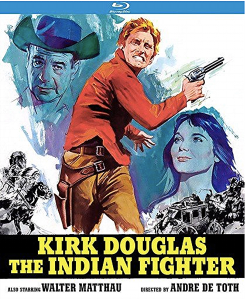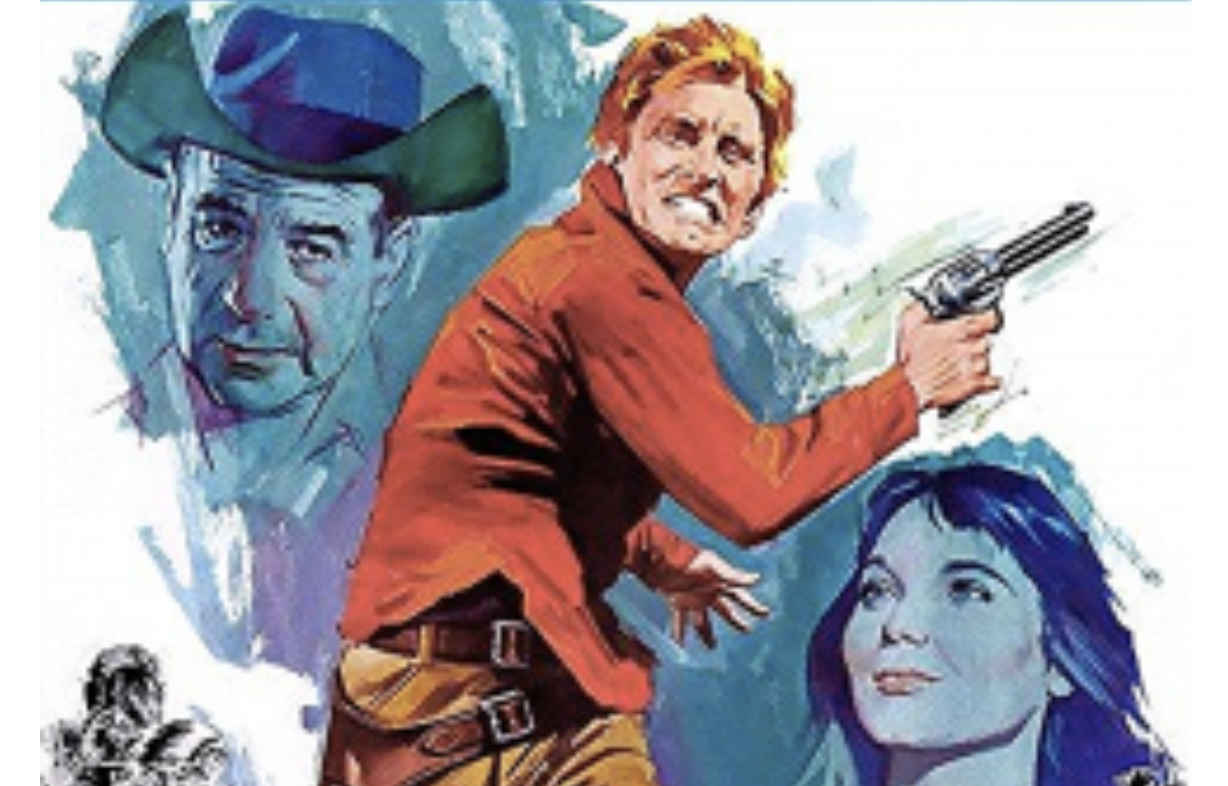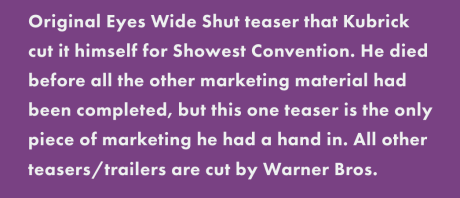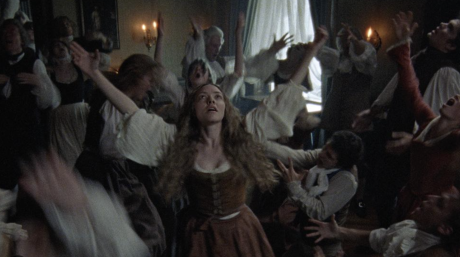The Indian Fighter (United Artists, 12.21.55) was a passable-but-no-great-shakes western, starring Kirk Douglas and directed by Andre de Toth. It served the usual brawny action stuff in eye-filling CinemaScope, but the main hook was the sexual rapport between the 39-year-old Douglas and the 20 year-old Elsa Martinelli, a native of Tuscany and a fashion model, playing a willing Sioux squaw.
Douglas was a legendary hound, of course, and given the fact that (a) he hired Martinelli after seeing her photo on a European magazine cover, and (b) his company, Bryna Productions, produced The Indian Fighter, you can guess what happened off-screen.
12.22.55 N.Y. Times review excerpt: “Douglas’s Johnny Hawks, a free soul, thinks nothing of detouring a wagon train he is leading towards Oregon in order to keep a nocturnal tryst with the chief’s comely daughter; and only one reel before he nearly had succumbed to the blandishments of an equally beauteous widow.
“It must be noted of course, that the script by Ben Hecht and Frank Davis has a fair sense of humor, and that the forests and mountains of Oregon, where this fiction was filmed, are sweeping and picturesque in color and CinemaScope.
“In the brunette Elsa Martinelli, who plays the Indian lass with a minimum of words and a maximum of feline grace, Mr. Douglas has come up with a pretty photogenic newcomer.
“Eduard Franz as Chief Red Cloud, Walter Matthau and Lon Chaney as the bad men of this escapade, Diana Douglas as the marriage-minded widow and cavalry officer Walter Abel do not contribute spectacular performances.
“But Mr. Douglas’ characterization is properly muscular. As a hard though not faultless gent, he sits a horse well, looks great in buckskins and sometimes gives the impression that he could take over a pioneer’s chores. Mr. Douglas has not blazed a cinema trail with The Indian Fighter, but he has come up with a sturdy entertainment that should please the action fans.”
But what would Ken Burns say?






